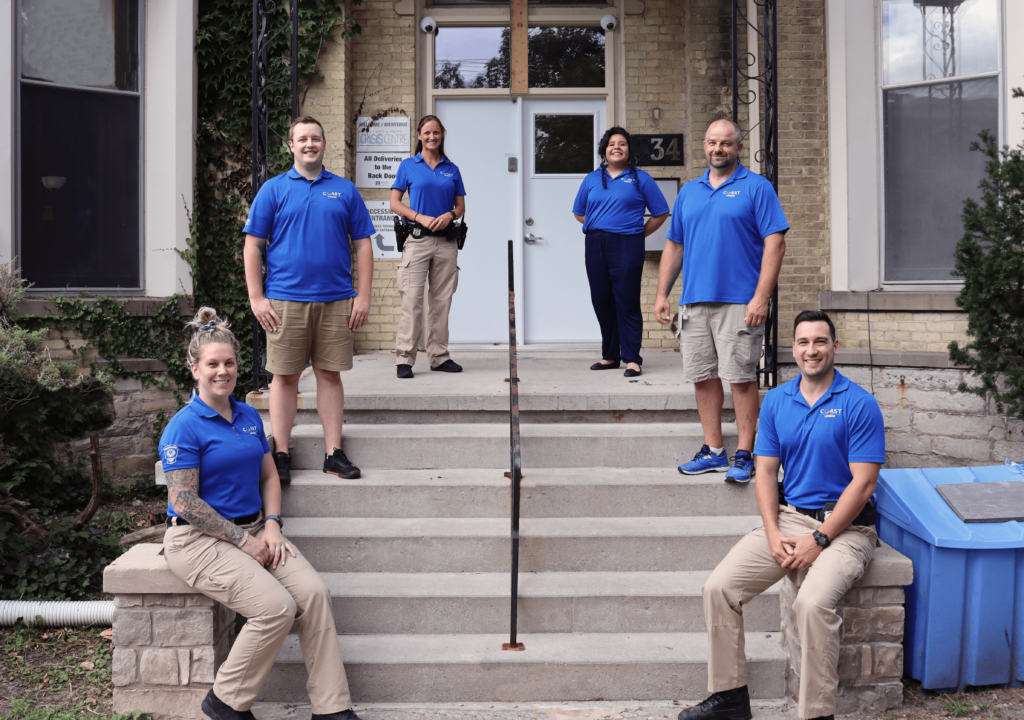Local health-care groups and the city’s police force have taken the wraps off of a health-care-led, police-supported outreach and support service pilot project aimed at minimizing officer interaction and use of force during mental health service calls.

Details of the initiative, the Community Outreach and Support Team, or COAST, were unveiled Thursday during a Zoom news conference. The pilot is a joint initiative involving the Elgin-Middlesex branch of the Canadian Mental Health Association (CMHA), St. Joseph’s Health Care London, Middlesex-London Paramedic Service (MLPS), and London Police Service (LPS).
The goal of the one-year pilot, which quietly began in April and is set to continue until the end of March 2021, is to reduce police-led responses to mental health or addictions crisis situations, and improve outcomes for those involved by making sure they get the care they need in the appropriate setting, officials said.
Already, COAST has responded to 210 face to face interactions and 226 non-face to face interactions, according to CMHA. Seventy-seven interactions have come through referrals from London police.
COAST team members “provide early and proactive intervention, de-escalation, and safe transition to appropriate care” to those 16 and older in crisis or at risk of crisis due to mental health or addictions issues, according to CMHA.
Each COAST team is comprised of two people, a London police constable and a member of one of the three health-care partners, including nurses from St. Joseph’s Assertive Community Treatment teams, social workers from CMHA, and paramedics from MLPS. There are currently 15 members on COAST, according to a CMHA spokesperson.
- ‘She gets to be 10’: Ontario child’s heart donated to girl the same age
- Bird flu risk to humans an ‘enormous concern,’ WHO says. Here’s what to know
- Buzz kill? Gen Z less interested in coffee than older Canadians, survey shows
- Shoppers faces proposed class action over claims company is ‘abusive’ to pharmacists
Officials say COAST teams work varying shifts seven days a week, noting that police officers are not in uniform and don’t operate a marked police cruiser.
“The majority of individuals who may benefit from proactive COAST involvement are currently identified and referred by LPS or CMHA’s Crisis Services and intake team,” according to CMHA’s website.
“At times, individuals may also be connected with COAST through calls for services received by LPS. This would be dependent on the nature of the call, as well as COAST availability.”
Funding for the pilot comes from each partner’s internal operating budgets, with the hope that as the year goes on, sustained permanent funding will be established.
“Definitely it could be a program that could operate 24/7,” said Lori Hassall, director of crisis services for CMHA Elgin-Middlesex.
“In this initial pilot, all of the partners were looking at using internal funding just to make it happen, and we looked at strategically having staff placed during peak hours so that we would be able to support the most people possible within those hours.”
In September, the London Police Services Board voted to move $500,000 from the police operating budget to fund the team.
“The COAST team is not a mobile crisis response team, but they do take calls for service away from frontline officers, particularly in relation to mental health, wellness checks, calls for service and health care directed apprehensions,” under the Mental Health Act, Supt. Bill Chantler said.
COAST was first announced after last summer’s Black Lives Matter London protests in response to the murder of George Floyd at the hands of former Minneapolis police officer Derek Chauvin. However, Chantler has said previously that the program has been in the works since 2019.
Black Lives Matter London has been calling for the reallocation of police funds to better address issues like mental health and homeless prevention.
London police attend to roughly 3,600 mental health calls every year, making 752 apprehensions under the Mental Health Act.
The COAST pilot will be the subject of a research project led by Dr. Craig Bennell of Carlton University’s Police Research Lab, who will provide an independent assessment and evaluation and provide recommendations.
More information can be found on CMHA’s website.
— With files from Matthew Trevithick, Andrew Graham, Sawyer Bogdan







Comments